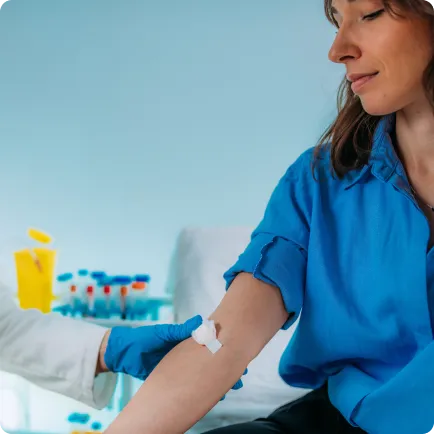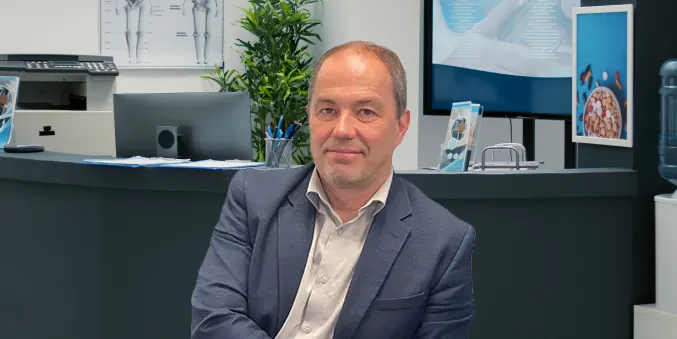Our Mission is to provide lasting relief that withstands life’s toughest challenges. With a focus on both immediate and enduring results, we are committed to helping you reclaim control and embrace a future filled with hope. Ketamine therapy offers a breakthrough approach for suicidal ideation, delivering rapid relief when other treatments fall short.

At Neuroplasticity MD, we are committed to providing lasting relief for individuals struggling with suicidal ideation. We understand that conventional treatments can take weeks or months to show results, leaving you feeling hopeless. Our innovative ketamine therapy offers a rapid and effective approach, helping you regain control and embrace a brighter future.
Suicidal ideation refers to persistent thoughts of self-harm or taking one’s own life. These thoughts are often linked to depression, severe stress, or other mental health conditions. However, it is important to note that experiencing suicidal thoughts does not always lead to action. Recognizing the signs and seeking timely, effective treatment is crucial in preventing escalation.
Warning signs of suicidal ideation can vary from person to person and may not always be obvious. Common symptoms include frequently talking about death, withdrawing from loved ones, reckless behavior, substance abuse, and sudden mood swings. Some individuals may also engage in giving away personal belongings or making indirect goodbyes. Understanding these signs can help in seeking timely intervention.
Recent studies have demonstrated that low-dose ketamine infusion therapy provides immediate relief for suicidal ideation, with effects lasting up to seven days after treatment. Unlike traditional antidepressants that may take weeks to work, ketamine interacts with NMDA receptors in the brain, increasing glutamate levels, which play a crucial role in stress response and emotional regulation.
Glutamate, a key neurotransmitter, influences how the brain processes stress and trauma. Ketamine, as an NMDA receptor antagonist, helps restore weakened or inactive AMPA receptors, which are often impaired in individuals struggling with suicidal thoughts. This restoration process can occur within hours, making ketamine therapy a fast-acting and effective alternative for those in urgent need of relief.
At Neuroplasticity MD, we specialize in low-dose ketamine infusions to help individuals struggling with suicidal ideation find relief when other treatments have failed. Our compassionate team is dedicated to offering a safe, supportive environment where you can begin your journey toward healing and stability.
If you or a loved one is battling suicidal thoughts, we encourage you to reach out to Neuroplasticity MD today. Discover how our advanced ketamine therapy in NJ, can provide the relief and hope you deserve. Your path to healing starts here.


Racemic ketamine, which is administered intravenously, goes directly to the patient’s bloodstream.
IV infusions provide a reliable and efficient method for administering this treatment, ensuring rapid absorption and effectiveness.
A quick-working nasal spray, offering quick relief of depression. It is an option that is typically covered by insurance.
These injections are delivered into the thick muscles of your arm, thigh, hip, or buttocks.

With a 25-year career as a psychiatrist, I have studied under influential experts in New York and Boston, delving into inpatient and outpatient care, research, and student supervision. Modern neuroscience guides me in addressing countless parent-child issues. Being part of this movement and sharing knowledge is a privilege. Having worked in esteemed institutions like Beth Israel at Mount Sinai, Tufts Medical Center, and Rutgers, I offer top-tier care, enriched by current research, while my passion lies in aiding those in need.
of patients report improvements in depression and anxiety within 4 weeks.
Ketamine works by enhancing the release of glutamate, a key neurotransmitter that plays a crucial role in brain function, emotional regulation, and stress response. By increasing glutamate levels, ketamine helps the brain process trauma more effectively, reducing symptoms of suicidal ideation. Its rapid-acting antidepressant and anti-anxiety properties make it a breakthrough treatment when other methods have failed. This process supports neural restoration, helping to strengthen and reactivate pathways that may have been weakened by prolonged stress or depression. As a result, individuals often experience quick and noticeable relief, allowing for a renewed sense of stability and hope. Unlike traditional antidepressants, which can take weeks or months to show results, ketamine promotes brain changes within hours, providing fast, effective relief when it’s needed most.
Suicidal ideation refers to having thoughts about taking one’s own life or contemplating suicide. These thoughts are commonly experienced by individuals dealing with depression or significant stress. However, it is important to understand that although many individuals experience these thoughts, the majority do not act on them. Recognizing suicidal ideation and seeking appropriate treatment is vital for addressing the issue effectively.
The signs of suicidal ideation can differ from person to person and are not always immediately noticeable. Common symptoms include:
• Repeated discussions or jokes about suicide
• Seeking methods to carry out suicide, such as purchasing weapons or acquiring pills
• Extreme mood changes
• Withdrawal from social interactions
• Substance abuse
• Risky or reckless behavior
• Giving away personal possessions or making emotional goodbyes
• Sudden fixation on death or violent themes
Recognizing these signs is crucial for seeking timely help and intervention.
Low-dose ketamine infusion therapy has demonstrated immediate benefits in treating suicidal ideation, with relief lasting up to a week after treatment. Ketamine works by enhancing the release of glutamate, a neurotransmitter that plays a significant role in regulating emotional responses and stress. By boosting glutamate levels, ketamine helps improve the brain’s ability to process trauma, offering fast-acting antidepressant and anti-anxiety effects. Unlike traditional antidepressants, which may take weeks to show results, ketamine’s effects are evident within hours of administration.
Every potential candidate for ketamine infusion therapy undergoes a consultation to assess their medical history, symptoms, and whether this treatment is appropriate for their needs.
The triggers for suicidal ideation can vary between individuals, but some common factors include:
Understanding and addressing these triggers early can help prevent escalation.
Ketamine therapy can offer rapid relief from suicidal ideation, but its effectiveness in preventing recurrence may differ from person to person. While some individuals may experience lasting results, others may need ongoing therapy and additional support, including counseling and other mental health treatments. It’s essential to work with a healthcare provider to develop a comprehensive strategy for managing suicidal thoughts and ensuring long-term mental well-being.
The number of ketamine therapy sessions required for treating suicidal ideation can vary based on the individual’s specific needs and response to treatment. Many patients experience significant improvement after a few sessions, while others may require additional treatments. Your healthcare provider will assess your progress and customize a treatment plan that aligns with your personal health goals and mental health needs.
Many insurance companies, along with Medicare, typically exclude coverage for infusion ketamine therapy but do cover intranasal ketamine (Sparavato).
No. To ensure your safety, we kindly request that you arrange for a designated driver to accompany you to the procedure. We also advise refraining from operating heavy machinery for 24 hours starting from the time of your treatment.
Happiness is a journey, not a destination. Learn how a
personalized treatment approach may help you break free and create a tomorrow full of infinite possibilities.
Our united team offers personalized care rooted in cutting-edge knowledge and unwavering compassion. With diverse backgrounds and specialties, we address a range of mental health concerns, guiding you to relief and growth.
Empowerment, resilience, and personalized attention define our approach. We are here to support you every step of the way, creating a safe space for exploration. Choose us for skilled, empathetic care. Your well-being matters and our team is committed to your success.

Take this next step, we’ll help with the others.
440 West Street, Suite 318 Fort Lee, NJ 07024
Office 94 valley Rd , Montclair , NJ 07042
440 West Street, Suite 318 Fort Lee, NJ 07024
Office 94 valley Rd , Montclair , NJ 07042
Disclaimer: The medical information on this site is provided as an information resource only, and is not to be used or relied on for any diagnostic or treatment purposes. This information is not intended to be patient education, does not create any patient-physician relationship, and should not be used as a substitute for professional diagnosis and treatment. Always consult your healthcare provider before making any healthcare decisions or for guidance about a specific medical condition.